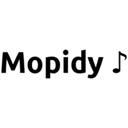Unveiling the Best Music Player Daemon Alternatives for Enhanced Music Management
Music Player Daemon (MPD) is celebrated for its flexibility and power as a server-side application for playing music, offering extensive control through its network protocol and diverse file support via plugins. However, for users seeking different interfaces, more integrated features, or specific platform compatibility, exploring a Music Player Daemon alternative can open up a world of new possibilities.
Top Music Player Daemon Alternatives
Whether you're looking for a feature-rich desktop player, a lightweight command-line interface, or a robust web-based solution, there's a fantastic alternative out there to enhance your music experience beyond MPD.

Exaile
Exaile is a cross-platform (Windows, Linux, BSD, Xfce), free, and open-source music manager and player written in Python. Its extensibility via plugins, including automatic album art fetching and Last.FM Scrobbler integration, makes it a compelling Music Player Daemon alternative for those who prefer a desktop-centric experience with rich features like Internet Radio.

Qmmp
Qmmp, a free and open-source audio player available on Windows, Linux, BSD, and Xfce, boasts a user interface similar to Winamp or XMMS. With features like a built-in media converter and Last.FM Scrobbler, Qmmp serves as an excellent Music Player Daemon alternative for users who appreciate a classic, intuitive UI combined with modern functionalities.

Mopidy
Mopidy is a free and open-source music server for Mac and Linux that stands out by playing music from both Spotify and your local hard drive. As a powerful Music Player Daemon alternative, it offers seamless Music Player and Music Streaming capabilities, making it ideal for those who bridge their local collections with streaming services.

Pragha
Pragha is a lightweight, free, and open-source Music Player for GNU/Linux and Xfce, written entirely in C and built for speed and efficiency. Its minimalist design and focus on performance make it a great Music Player Daemon alternative for users prioritizing a fast and light application.

Herrie
Herrie is a minimalistic, free, and open-source music player that operates via the command line, supporting various operating systems (Mac, Windows, Linux) and audio formats. For users accustomed to MPD's server-side nature and seeking a streamlined, command-line interface, Herrie is a fitting Music Player Daemon alternative.

netjukebox
netjukebox is a free and open-source web-based media jukebox compatible with MPD, VideoLAN, and Winamp/httpQ, offering real-time MP3 streaming and track downloads. Its cross-platform (Mac, Windows, Linux, Web) and web-centric approach make it an excellent Music Player Daemon alternative for those desiring remote access and streaming capabilities.

xmms2
xmms2 is a free and open-source music player and manager for Mac and Linux, featuring a built-in media library, a smart client-server model, and a sophisticated plug-in architecture. Its flexible design positions it as a strong Music Player Daemon alternative for users who appreciate robust backend control and extensibility.

vitunes
vitunes is a free and open-source, curses-based music player and playlist manager for *nix (Mac, Linux, BSD) known for its minimalistic appearance, strong vi-like bindings, and quick playlist management. For those who value command-line efficiency and Vi keybindings, vitunes offers a unique and powerful Music Player Daemon alternative.

Music Folder Player
Music Folder Player is an elegant, free, and open-source HTML5 web folder player for self-hosted music collections, featuring intuitive playlist management and audio streaming. As a web-based Music Player Daemon alternative, it's perfect for parties or private use, offering easy access to your music library from any browser.
With this diverse selection of Music Player Daemon alternatives, you're sure to find a solution that aligns perfectly with your operating system, interface preferences, and desired feature set, ultimately enhancing your digital music experience.